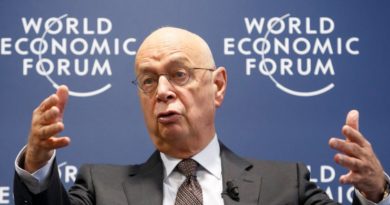Great Reset? No thanks. But we all need a Small Reset. – MercatorNet
In the wake of the COVID-19 pandemic, Klaus Schwab and his World Economic Forum proposed a great reset of capitalism which would lead to fairer market outcomes and would reach shared goals like equality and sustainability. This startled many people. To many of its critics the “Great Reset” was arrogant over-reach by an international cabal.
But we all sense the need for change. Perhaps what we need is a “Small Reset”, a new way for each of us to approach our professional lives. Here’s my proposal to do just that.
This story starts with a story that tells it all. I was a biologist and a starting writer in a professional fix. Jammed in between three jobs, there was no room for me to contribute to the world through my creative gift. I felt as though I was dying on the inside. A friend of mine pointed me to a book by Lans Bovenberg, a prize-winning Dutch economist. Here was someone I could click with. So I wrote Lans a letter and to my surprise he invited me for a chat. Synergy happened. We came up with an idea to write a book together. But how was I to find the time?
The solution came when Lans hired me for one day a week for two years as a post-doc. This made it possible for me to temporarily reduce some of my other duties. The circumstances that allowed Lans to hire me were rather providential, but still: why would he take this chance on a starting writer like myself? It felt like heaven. It was only later that I realized that this act was completely in line with Lans’ view of what economics is all about. His proposal was truly a “small reset” – and only that could help me out of my fix.
Economics and our lives
Earning a crust is a big part of our lives. How coherent is it for someone who is a loving parent, for instance, to suddenly transform into a calculating and self-optimizing homo economicus in the professional sphere? Still, this type of incoherence is what the private life versus professional life dichotomy seems to encourage. Can love not be a part of the professional and economic life? Lans Bovenberg, for one, thinks it can.
Economics, he says, is not, as most people think, about money. Economics is about relationships, about people working together. Money is there to facilitate these relationships. Money is trust. Money facilitates economic love.
Love, however, is not a simple reality. For example, a baby may love its parents, but that love is primarily a receiving love, a need-love. Also, love between friends is not the same as romantic love, or the sacrificial love of parents for their children. In the same way, Lans says, economic life has different types of love. Some people may be in a position to sustain others self-sacrificially, but others are just in need of sustenance. Others may complement each other with different talents. Still others may just be helping each other out with favours.
What came out
Lans and I had very different backgrounds and working together was not always a breeze. There were misunderstandings, and we had to find a format and language that would suit our message. In the end, we came up with a creative format: a novel titled Win Win Win.
Why a novel? Mainly for didactic reasons. The three main characters have their own personalities but also represent three different types of economic love.
The main character, Miriam, is inspired by “eros” or “need-love”. Claudio, a character with southern European roots is inspired by “philia” or “friendship-love”. Finally, Patience, a young lady of Ghanaian descent, is inspired by “agape” or “gift-love”. On a a more philosophical note, each of them also received inspiration from the modern, classical, and Christian view of the human being, which are explained in my philosophical booklet Freedom in Quarantine.
The novel reflects on the dynamics of how differences between people can be constructive as well as destructive. Relationships are not always a primrose path, but if we manage to deal with differences constructively, they can become a real blessing.
Each of the characters invites self-examination. What about the main characters do you recognize in yourself and in others? In which way does that challenge your approach to professional life? How do you deal with challenges in your relationships? These are some of the questions the book raises.
Where does the “small reset” take place?
To me, the best place for a “small reset” is in the context of relationships of people that care for each other and want to grow together. That can be schools or universities, but also professional associations; it may even be something for parents to do with older children. Professional life is not wholly outside of our personal life and this book is an opportunity to show and discuss precisely that.
Lans applied his philosophy of “loving economics” to me by giving me an opportunity to write Win Win Win. I have in turn tried to “pay it forward” by involving Manon Blanke, a student of mine, who in this way was able to contribute a valuable insider perspective on student life and also publish her first book in the process. It is our hope that we can in this way contribute to a “small reset” in many people’s economic lives, and generally make our workplaces a more loving environment.
This article has been archived for your research. Find the original article here.


